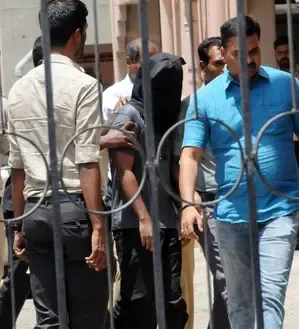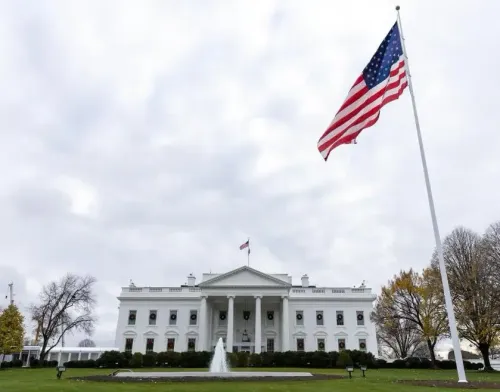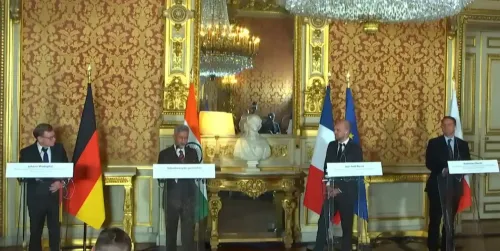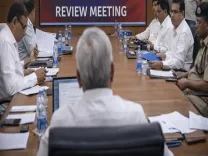What Sentenced Two Income Tax Officials to Four Years' Imprisonment in 2015 Bribery Case?

Synopsis
Key Takeaways
- Two Income Tax officials sentenced to four years
- Conviction reinforces accountability in public service
- Corruption undermines public trust
- CBI's role in tackling corruption highlighted
- Judiciary's commitment to justice reaffirmed
Jaipur, Sep 26 (NationPress) A CBI Court in Jodhpur has delivered a significant verdict in a high-profile corruption case that rattled the Income Tax Department back in 2015.
The court has sentenced Pawan Kumar Sharma, who was the Income Tax Commissioner at the time, along with Shailendra Bhandari, the then Income Tax Officer, to four years of simple imprisonment each for their involvement in accepting bribes.
The events of this case trace back to 2015 when the Central Bureau of Investigation executed a trap operation at a jewellery showroom located near Sojati Gate, Jodhpur.
Responding to a complaint, the CBI apprehended Sharma and Bhandari in the act of accepting a bribe amounting to ₹15 lakh. Both were taken into custody immediately, prompting an in-depth investigation.
The CBI's inquiry uncovered that the two officials had egregiously abused their official roles by soliciting and receiving illegal payments from local jewellers.
Following the evidence gathered, the agency filed charges in court. After years of legal proceedings, the court found both individuals guilty of corruption under the applicable sections of the Prevention of Corruption Act.
During the verdict, the Magistrate expressed strong condemnation of the officials' actions. The ruling pointed out that senior officials, who are entrusted with constitutional responsibilities, are expected to uphold integrity, yet these two engaged in “deplorable acts of corruption.” Such behaviors, the court noted, erode public trust and tarnish the reputation of institutions designed to uphold financial discipline.
However, the court acquitted jeweller Chandraprakash Katta, citing a lack of sufficient evidence to establish his involvement in the bribery scheme.
In its comprehensive judgment, the court stressed that corruption cases necessitate stringent actions at every level, sending a loud and clear message that the abuse of power for personal gain will not be tolerated. It highlighted that the law has a long reach and can catch up with offenders regardless of their status.
The sentencing of Sharma and Bhandari not only concludes a case that has lingered for nearly a decade but also reinforces the principle of accountability in public service.
This incident had severely impacted the reputation of the Income Tax Department in 2015; however, the recent convictions restore the faith that justice ultimately prevails.










